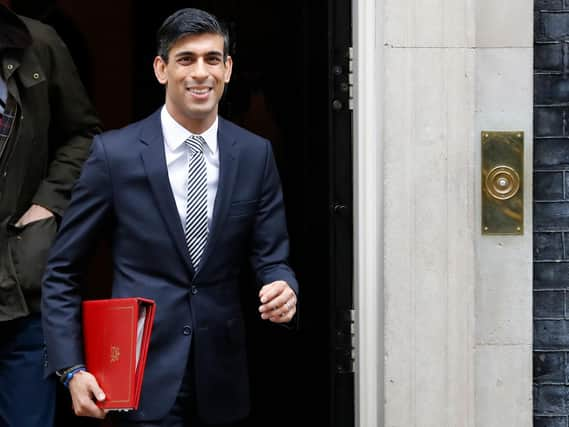Budget 2020: Multi-billion boost as relief for business starters scaled back sharply


But Rishi Sunak said “most of that money” will go back to firms through a series of other measures, including increasing the tax break for research and development expenditure, and the structures and building allowance.
While entrepreneurs’ relief will be retained, despite pressure from some quarters to scrap it, the lifetime allowance is to be reduced from £10 million to £1m.
Advertisement
Hide AdAdvertisement
Hide AdMike Cherry, national chairman of the Federation of Small Businesses (FSB), said: “The sensible compromise on entrepreneurs’ relief is one that we have proposed and championed, and everyday entrepreneurs will be pleased to hear the Chancellor say that he has listened to the FSB on this.
“This has been a deliberately pro small business first Budget for the Chancellor. We hope it is the start of things to come.”
Since 2016, the Association of Accounting Technicians (AAT) has been campaigning for entrepreneurs’ relief to be scrapped in favour of targeted investment towards start-up and scale-up activity.
Phil Hall, the AAT’s head of public affairs and public policy, said: “AAT is pleased that the Chancellor acknowledged many of the numerous negative points that this misnamed relief has, including that less than one in ten entrepreneurs has been incentivised to invest because of it, that its name is misleading and that 75 per cent of the £3bn annual cost of the relief goes to just a handful of individuals.
Disappointing
“Having acknowledged all of those problems it’s therefore very disappointing that the government has failed to scrap it and has instead opted to restrict the relief from £10m to £1m.
“There is an overwhelming body of evidence that indicates the relief does not achieve its policy objectives, that it’s extremely expensive, misguided, poorly targeted and ultimately ineffective – so restricting its availability rather than scrapping it is clearly a missed opportunity.”
He added: “The abolition of this relief would in no way be an attack on entrepreneurs or entrepreneurialism and to suggest otherwise is to ignore the evidence.”
Jonathan Boyers, head of mergers and acquisitions for KPMG in the UK, said: “Today’s changes to entrepreneurs’ relief signals that the government is shifting its tax policy focus from the end to the beginning of the entrepreneur’s journey, all with the purpose of incentivising innovation and business investment. For those business owners who were looking to exit over the weeks and months ahead, it is unlikely that today’s announcement will see them dramatically alter their plans – after all, they will still be paying a reduced rate of capital gains tax.
Advertisement
Hide AdAdvertisement
Hide Ad“Instead, they will be more focused on whether the anticipated disruption caused by Covid-19 and associated volatility on the stock markets will be significant enough to disrupt underlying trading performance, and therefore affect the appetite of trade and private equity buyers.”
Labour leader Jeremy Corbyn later criticised the Chancellor’s decision not to scrap entrepreneurs’ relief, noting: “A huge subsidy mainly benefiting 5,000 people who make an average of £350,000 per year.
“I can only assume those who fund the Conservative Party have had a quiet word with the Chancellor and told him to back off.”
Matthew Lesh, head of research at the London-based free market, neoliberal think-tank the Adam Smith Institute, said: “We should welcome the increase to the national insurance contribution threshold, the fuel and alcohol duty freezes, and maintaining the entrepreneurs’ relief, albeit in a scaled-back form.”